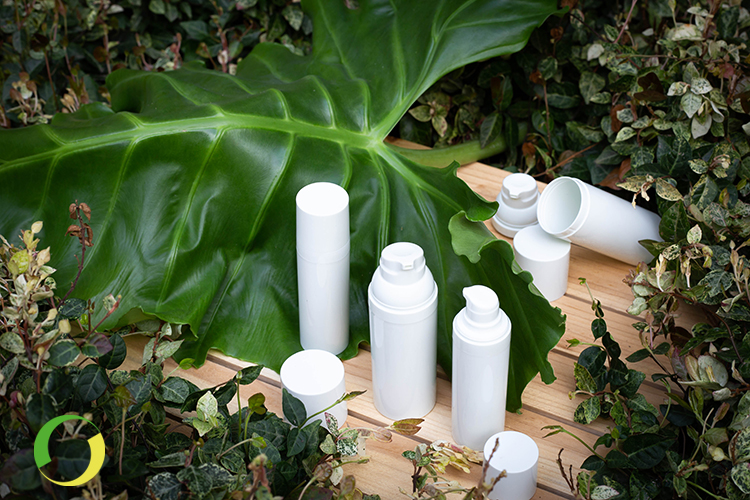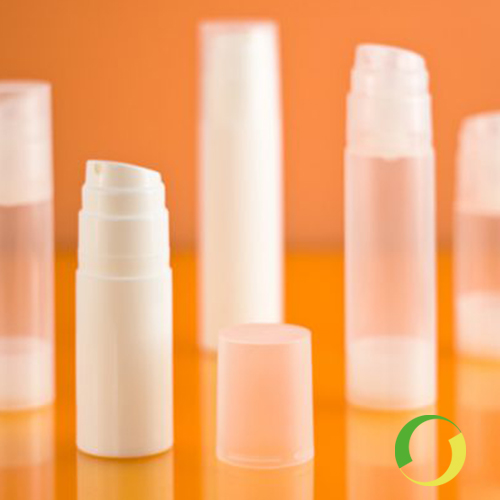
@Valentina Santoro
The recycled PP airless bottles.
Steba has recently introduced airless bottles made of recycled PP into its offerings. Thus, after recycled PET, the company continues to pursue its goal of offering the indispensable advantages of plastic with a focus on environmental issues. Let us then see the strengths of this new product by analyzing its two main features:
- the airless technology
- the recycled PP polypropylene
Airless technology
Translating from English, airless literally means airless. This is precisely the great plus of such technology: the ability to store, transport and dispense the internal, contained product without it coming into contact with theexternal environment.

- contaminations
- anticipated deterioration
- Undesirable chemical processes due to the presence of oxygen
Thanks to all these advantages the airless bottles are perfect for cosmetics as well as pharmaceutical and herbal products that need maximum hygiene and safety. The only prerequisite is that the product must be creamy, viscous and fluid in consistency.
Otherwise, the package cannot guarantee dispensing, and another type of packaging will have to be targeted. For example:
- plastic bottles
- containers made of aluminum
- packages in glass
The recycled PP polypropylene
Technically, polypropylene is a thermoplastic polymer derived from petroleum and invented around the 1950s. PP is used in the production of so many items. For example, furniture and design pieces, food trays and clothes. Even the special nonwoven fabric of surgical masks is made of polypropylene.

As you can read in this in-depth article, the company’s desire is to create a catalog composed of bothvirgin plastic products and recycled plastic bottles. This is because we are convinced that sustainability does not come from the absolute abolition of this material, but from its conscious use.
Plastics and sustainability: recycling is the key
Plastic’s lack of sustainability lies not in the material, but in its careless use. Recycling is the real key to making its production greener. In fact, in itself, plastic has unquestionable advantages that allow us on the one hand to have practical and manageable products, and on the other hand to respect basic hygiene protocols. The damage produced on the environment by plastics stems mainly from the little care that humans take in its disposal.
Steba has decided to raise awareness in this direction and, if you are interested in the topic, we recommend that you learn more by reading the article The disposal and reuse of plastic in containers.

